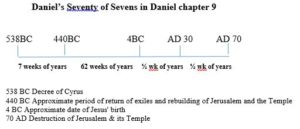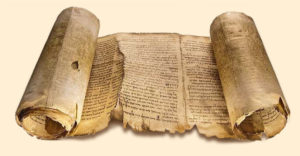
Daniel’s Prophecy of the Seventy Sevens
Guest writer: Dr. Leong Tien Fock
[The Book of Daniel prophesied that the Messiah will be killed during the time of the Roman Empire. The prophecy was fulfilled 500 years later when Jesus Christ was crucified by the Romans]
The Book of Daniel, written by about 530 BC, laid out in advance the historical time-frame within which the Messiah would come. Through dreams given to Nebuchadnezzar (Daniel 2) as well as to Daniel (Daniel 7 and 8), God revealed that the Babylonian Empire (Dan. 2:38) would be subsequently replaced by the Medo-Persian Empire (Dan. 8:20; cf. Dan. 5:28), the Greek Empire (Dan. 8:21), and an unnamed fourth kingdom, which we know from history to be the Roman Empire (for a thorough defense that the fourth empire is the Roman Empire, see Young 1977: 275-94).
It is specifically revealed that the Kingdom of God would come during the fourth kingdom to replace all earthly kingdoms (Dan. 2:44-45). And this would happen when “one like a Son of Man” is given “dominion … and a kingdom, that all the peoples, nations and languages should serve Him” and whose “dominion is an everlasting dominion” and whose “kingdom is one which shall not be destroyed” (Dan. 7:13-14). In other words, the Messiah would come during the Roman Empire…
Continue reading “Daniel Prophesied Christ’s Death 500 Years (Seventy-Sevens) Before It Happened”
